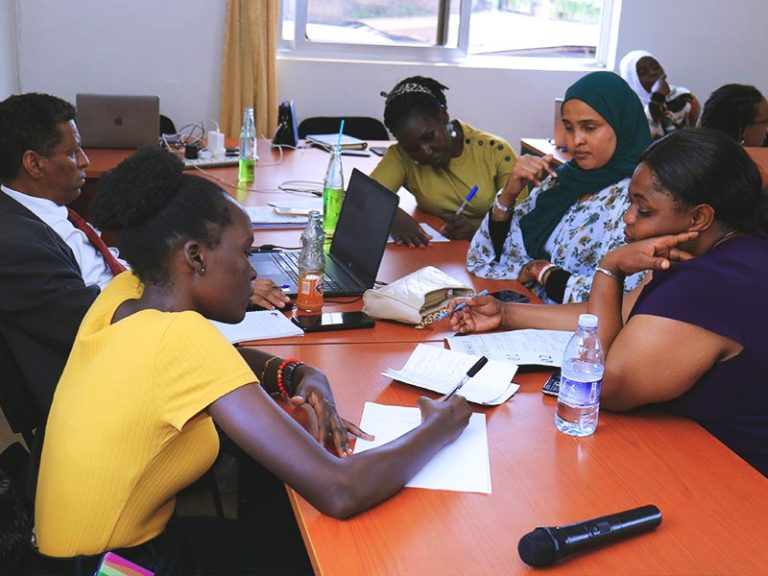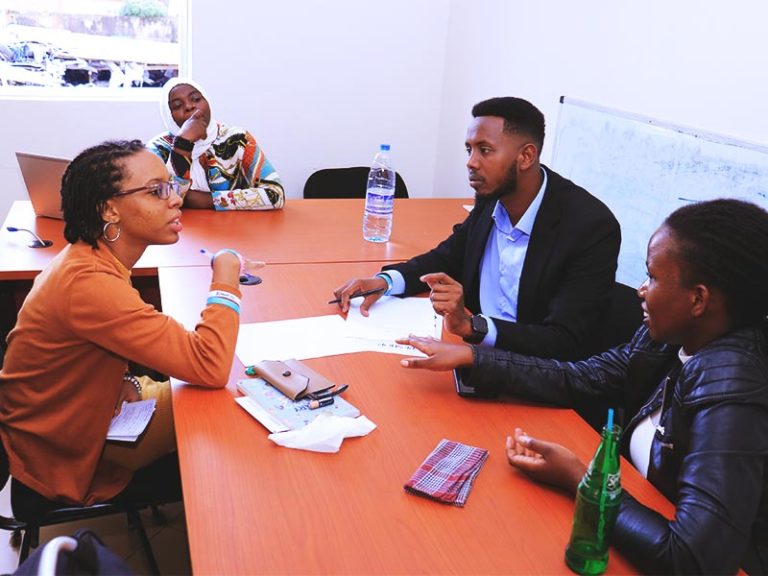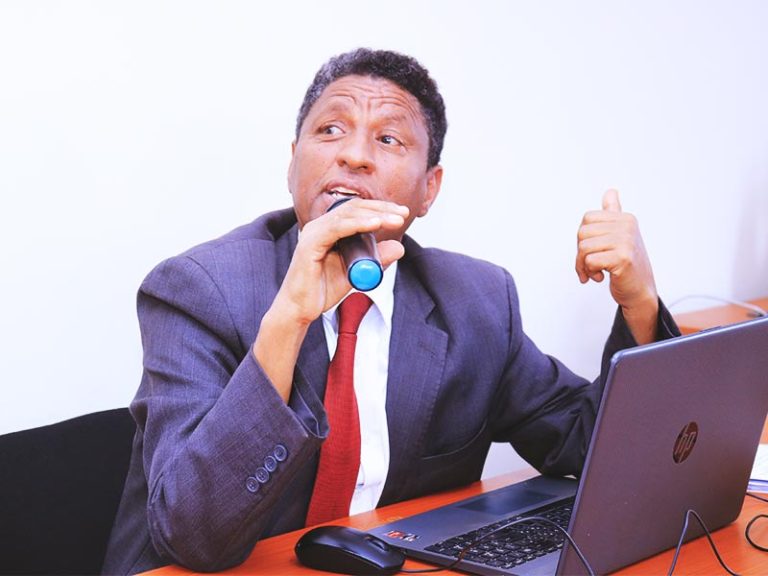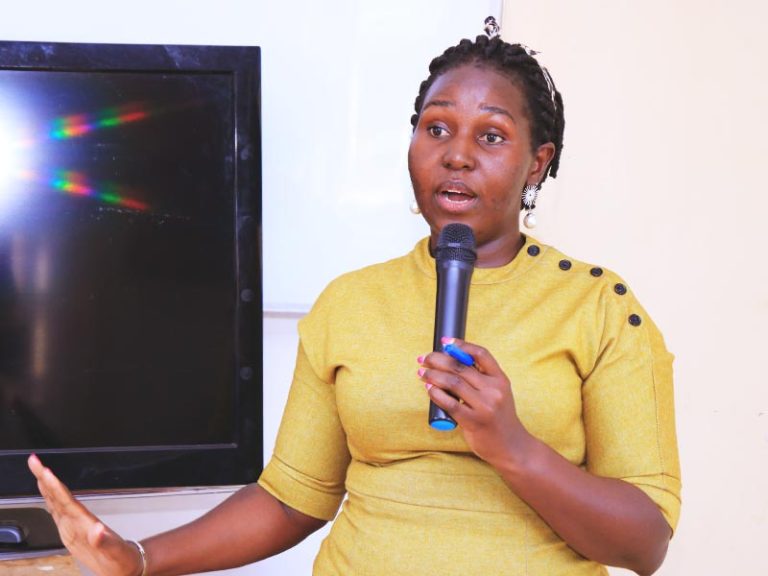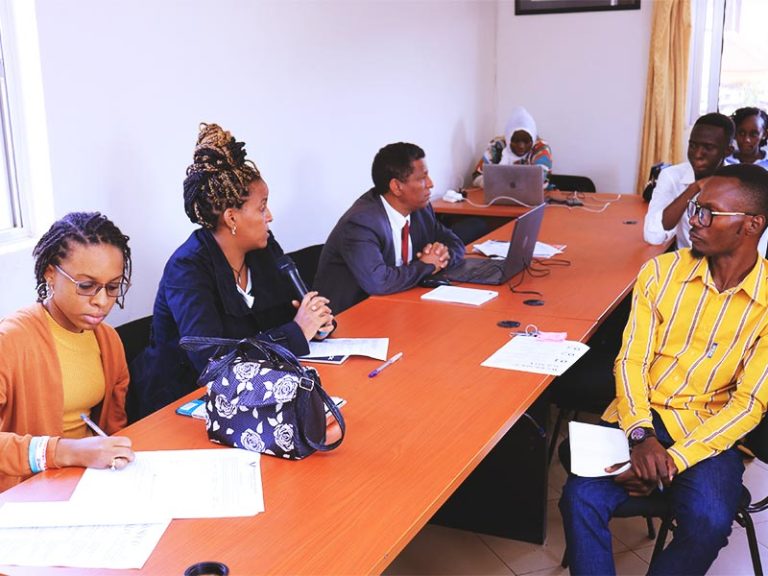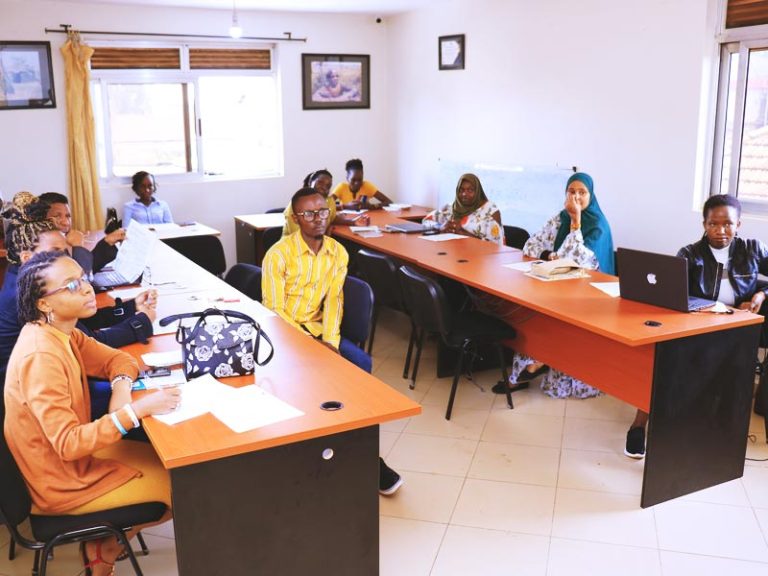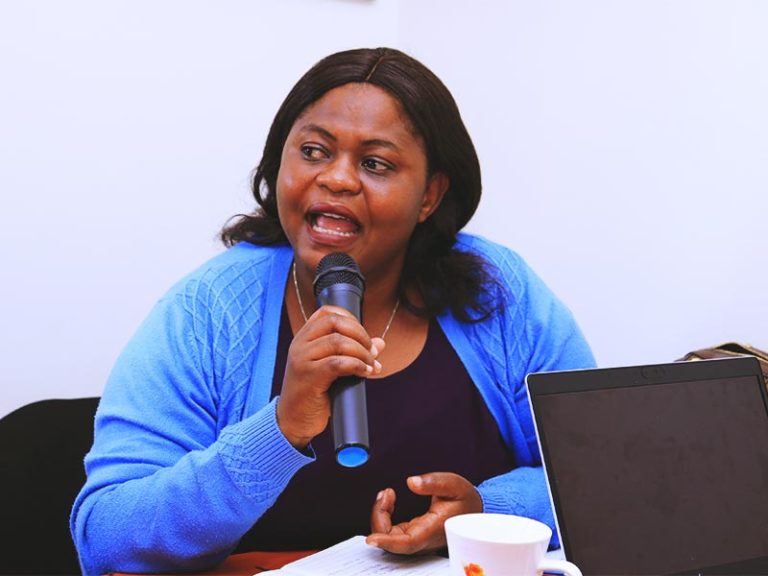This session was hosted by Rendezvous Youth Group in Kampala, Uganda and it was designed to address the urgent need to prioritize the mental health of young forced migrants to give them access to quality learning, livelihood opportunities, and lead dignified lives. The session was held as a workshop, bringing together young influencers from the communities, leaders from government, and NGOs that work with refugees and mental health issues . The main objective of the workshop was to propose practical interventions that can be implemented to address mental health challenges among young people, especially forced migrants.
Overview of the session
The session was run by Shalom Ishimwe, president of Rendezvous Group and Nakalema Maureen, counselor at Refugee Law Project. The content of the session centered around first understanding what mental health is, the factors that affect ones’ mental health state and the steps that can be taken to improve this state. From this conversation, it was learned about unskilled mental health professionals and counselors that are hired in some refugee NGOs in Uganda that sometimes worsen the mental state of people who seek guidance.
Workshop participants brainstormed about common causes for mental health issues, which included social isolation, discrimination, unhealed past traumas, insecurities, instability, and more. Among the possible solutions that were discussed between the participants and moderators, it was agreed that seeking professional support and attending counseling sessions was primordial. However, since this is not a possibility for some, work on self-acceptance, trusting family and friends and have more openness about ones’ feelings, could be things that support.
Recommendations from session findings:
- NGOs and Refugee led organizations (RLOs) should ensure that they hire skilled mental health professionals and counselors.
- NGOs should organize more ‘refugee talk meetings’ that are inclusive of all refugee communities.
- Mental health agencies should be in position to send representatives in schools to talk to the young people and guide them on mental health.
- Refugee communities (nationalities), that hardly access services should be prioritized while projects are being implemented.
- More mental health related projects need to be implemented in the communities of refugees.
